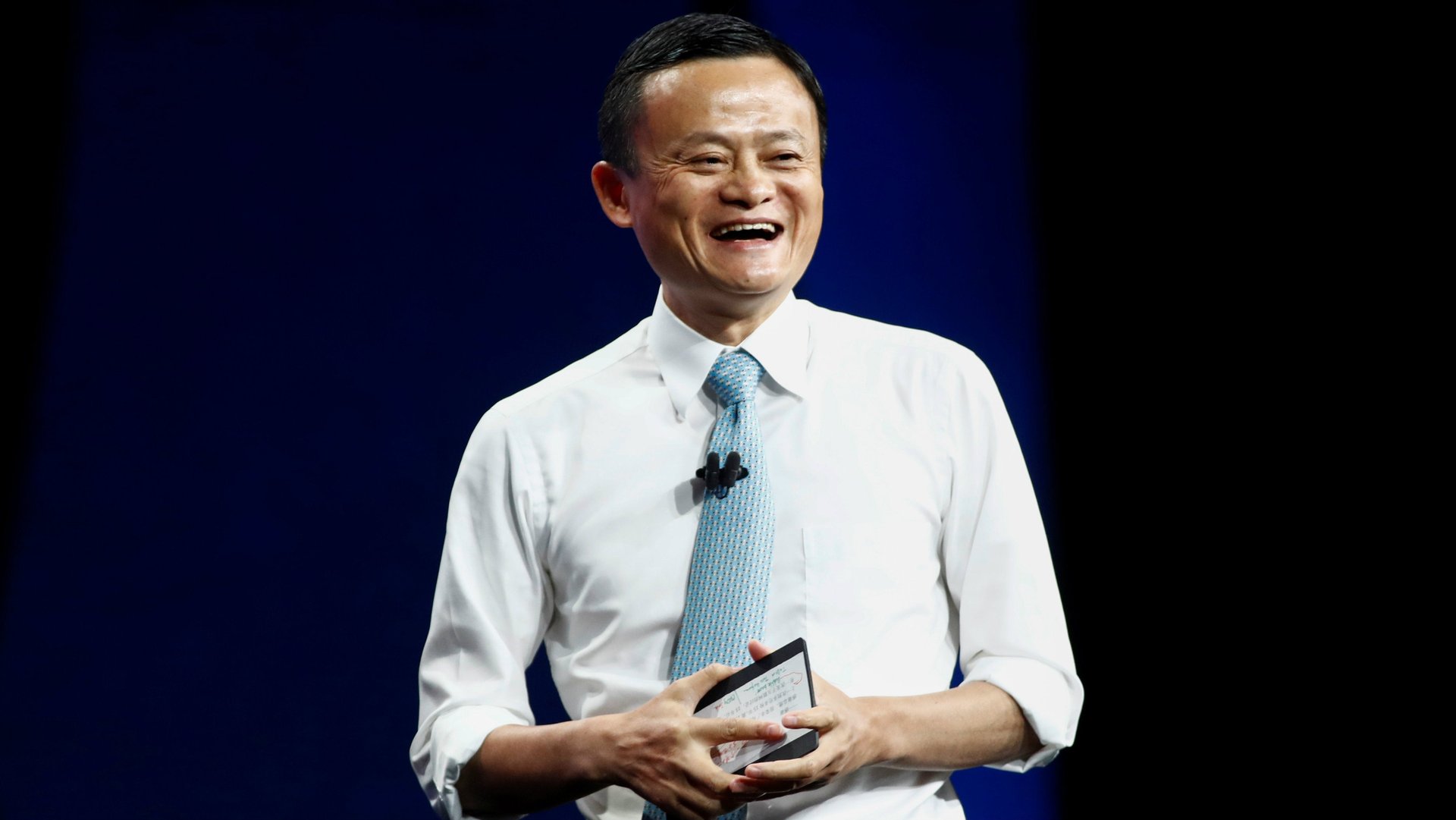Jack Ma has some thoughts on China’s “clean” communism and the US’s divided politics
Jack Ma is one of China’s most outspoken entrepreneurs. He’ll regularly entertain audiences with stories of his rejection by KFC, his pre-Alibaba days as an English teacher, and words of wisdom for budding entrepreneurs.


Jack Ma is one of China’s most outspoken entrepreneurs. He’ll regularly entertain audiences with stories of his rejection by KFC, his pre-Alibaba days as an English teacher, and words of wisdom for budding entrepreneurs.
On Nov. 29th, at a conference in Zhejiang province, he turned his attention to politics (link in Chinese). And amid illustrious praise for the Communist Party, he took a jab at western-style democracy.
Speaking to an audience of entrepreneurs and business executives, Ma criticized the infighting between the two main political parties in the US.
“I watched the 19th Party Congress myself many times, and our company has studied it internally many times. I’ve been to many countries, and China has two advantages,” he said. “The first is China’s political stability, there’s no other country the entire world with this type of environment. The Democratic party always talks about how bad the Republican party is, and the Republican party always talks about how bad the Democratic party is, and they never improve themselves. In the past five years under the Communist party, I really think it’s gotten more amazing, [the party’s] ability to improve itself and re-invent itself.”
Ma added that now is the best time ever to be doing business in China.
“Today’s China, the era of today, is the best time to be doing business. We don’t need to go bribe people, we don’t need to form unnecessary guanxi,” he said, using a common term for business networking in China. After president Xi Jinping took power in 2012, he initiated a country-wide campaign against corruption at all levels of government, which had such a great impact that sales of luxury goods tanked as people feared consequences for “gift-giving.”
“The work of China’s clean and honest government has attracted the attention of the world: there’s no country on earth like this,” he said.
Ma’s comments are unusual for him. While he is not known for criticizing the party directly, he is also not one to fawn over it either. In a 2015 interview at Davos, Ma discussed how he once worked at a Chinese state-owned enterprise, which led him to tell early Alibaba employees they should be “in love with the government [but] don’t marry them.”
“Normally, when the government comes and says ‘Jack, can you do this project?,’ I say no,” he said.
In 2013, as Ma began turning his Paypal-esque Alipay online payment service into something resembling a bank, he openly criticized China’s financial system, arguing it didn’t serve China’s ordinary consumers.
“China’s financial industry, especially the banking industry, only serves 20% of clients, and I see there are 80% of the clients are not covered (by their services),” he said in an interview (paywall) published in state newspaper People’s Daily. “As a layman, I don’t know too much about finance… Financial services should be about serving the layman, rather than playing inside your own circles and make money yourself.”
In recent years the relationship between China’s Communist Party and its tech giants, arguably among the biggest successes of China, has drawn closer. The party sees tech as a vehicle for economic transformation, as well as to monitor society and maintain stability. But tech is also something to control, particularly when it comes to expression online, and there has been talk of the government taking stakes in technology companies. All of that makes for a tricky environment for founders to navigate, particularly those seeking an amiable relationship, but not marriage.